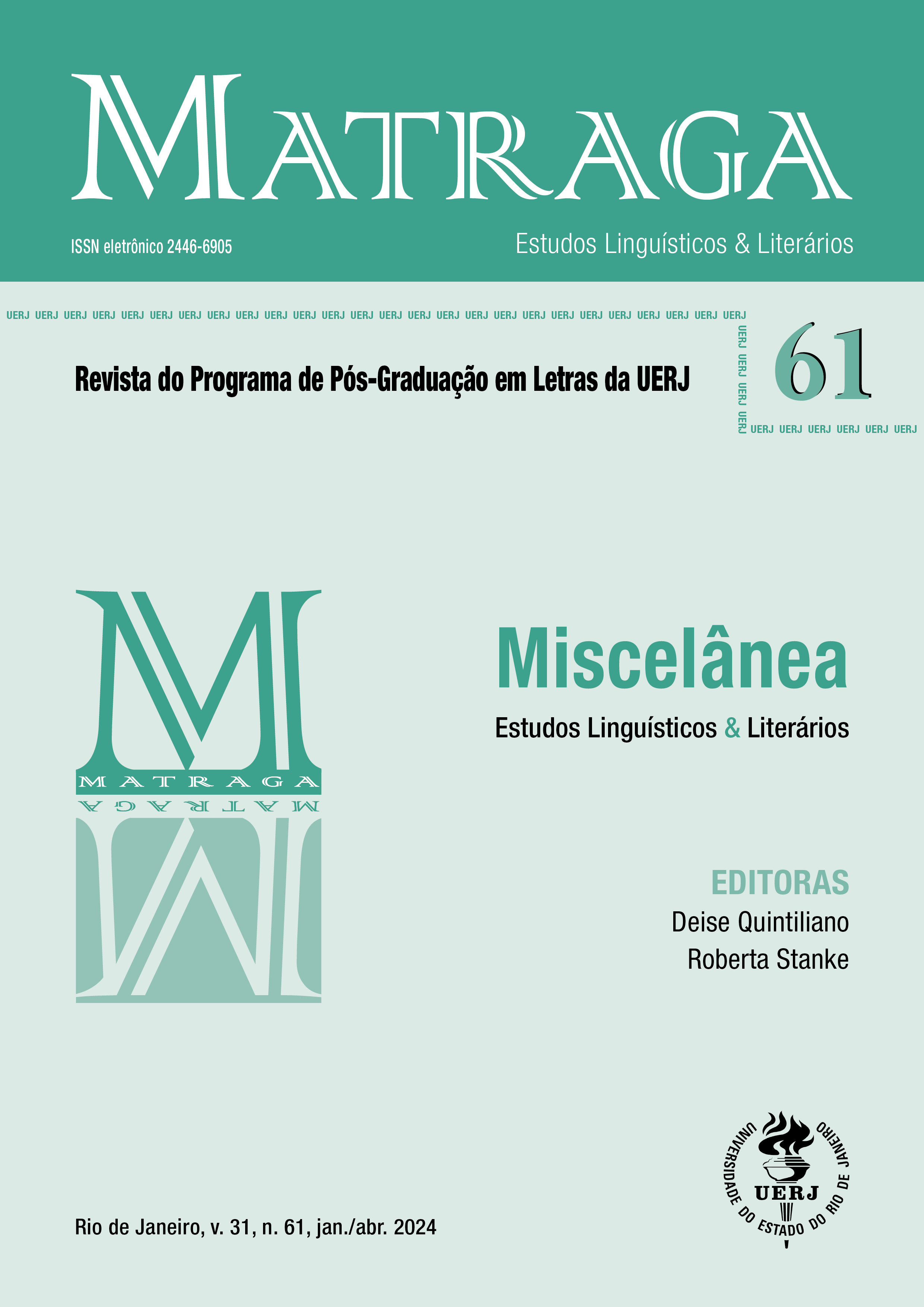Flaubert: the celibate machine
DOI:
https://doi.org/10.12957/matraga.2024.79809Keywords:
Imaginary, fetishism, hermeneutics, celibate machine, sadomasochismAbstract
This article proposes a new interpretation of The Family Idiot, moving away from traditional biographical conceptions such as chronological, dialectical, psychoanalytic, and thematic approaches. Following the paths opened by Sartre in The Imaginary, where signs and magic coexist, it adopts a kaleidoscopic methodology inspired by a “conceptual” framework, akin to Marcel Duchamp. The subject is captured in the transparency of glass through a transversal gaze supported by X-ray probe scans at different levels: characters (father, mother, close friends), sexual relationships, places, and book references. What follows are folds of shadow and light that illuminate Flaubert’s obsessions: dreams of ascent or descent, passivity, stupidity, fetishism, sadomasochism. The pursuit of objects, with multiple possible couplings, outlines a form of work and hermeneutics in a fan-like fashion in disconnected fragments, constituting the “Flaubert’s celibate machine” as conceptualized in the notions of the body without organs or caress, later developed by Deleuze and Derrida.
Downloads
References
DERRIDA, Jacques. Le Toucher. Jean-Luc Nancy. Paris : Galilée, 2000.
FLAUBERT, Gustave. OEuvres de jeunesse. La Pléiade, Paris : Gallimard, 1990.
FREUD, Sigmund. Le fétichisme. In : La vie sexuelle. Paris. Presses Universitaires de France, 1927.
SARTRE, Jean-Paul. Les mots. Paris : Gallimard, 1964.
SARTRE, Jean-Paul. L’idiot de la famille : Gustave Flaubert de 1821 à 1857. Paris : Gallimard, 1971-1972, 3 tomes.
SARTRE, Jean-Paul. Saint Marc et son double. Le séquestré de Venise. Inédit. In : Obliques, nº 24/25, Sartre et les arts (éd. Michel Sicard), Editions Borderie, Nyons, 1981, p. 171-202.
Published
How to Cite
Issue
Section
License

This work is licensed under a Creative Commons Attribution-NonCommercial 4.0 International License.
Authorization
Matraga – Scientific Journal of the Post-graduate Program in Arts and Humanities of UERJ is authorized to publish the article submitted here, if it is accepted for online publication. It is attested that the contribution is original, that it is not being submitted to another publisher for publication, and that this statement is the expression of truth.
The works published in Matraga's virtual space – Scientific Journal of the Post-graduate Program in Arts and Humanities of UERJ will be automatically transferred, and your copyright is reserved to Matraga. Its reproduction, in whole or in part, is conditional on the citation of the authors and the data of the publication.

Matraga uses license Creative Commons - Attribution-Non-Commercial 4.0 International.





